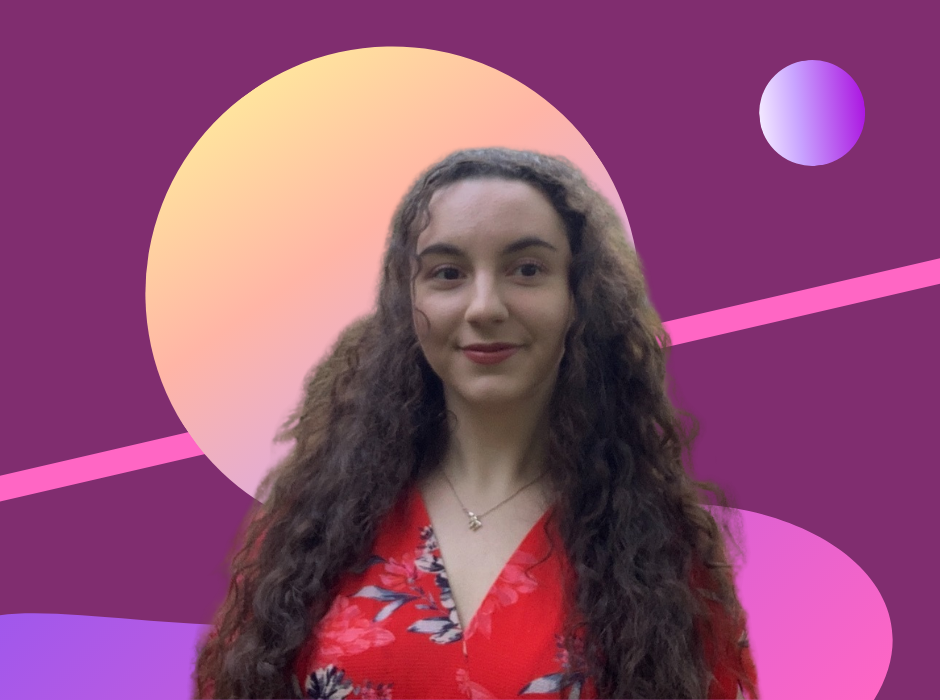I was met by this shocking headline: “Kyiv Train Station Mayhem as Thousands Rush to Flee.”
I couldn’t believe how familiar it felt. Growing up, my mother would always tell me stories of my grandmother and her grandmother before her, boarding trains to escape occupation. “They were heroes,” she’d say. “Women are the unspoken heroes of war. They are brave, humble, and resilient protectors — a force to be reckoned with.”
It was 1940, a year after the German invasion of Poland kickstarted World War II. My grandmother Maya, a baby at the time, was taken in by her grandmother Chaya-Sura. They resided in the Jewish community of Kremenchuk, a quiet town in central Ukraine. Although for months, the city remained undisturbed by the war, on September 15th of 1941, everything changed: the German army invaded.
Prepared for the worst, Chaya draped as many belongings as she could about her body, one hand clinging to her son’s and the other arm cradling my grandmother. She ran for the trains with her elderly husband.
Journalist Asami Terajima describes the situation in Ukraine now as one in which “thousands of people spen[d] hours … each day, hanging onto a slim hope of boarding a train to flee.” The article reads in tandem with my mother’s stories of the past. Chaya had caught the last train leaving Kremenchuk, unaware of where it would end up — if anywhere at all. Many days later, it eventually stopped in Urala Russian city in which her husband, a deeply religious Orthodox Jew, was promptly detained and sent to the Ural labor camps for speaking out against the government.
While she had succeeded in her escape, Chaya’s parents and relatives hadn’t. They had stayed behind in Kremenchuk and were executed soon after when their neighbors exposed their Jewish identity to the Nazis. Having lost nearly everyone, Chaya single-handedly managed to survive while protecting a baby and a young child from the looming German threat.
Chaya and the children stayed in the city of Molotov (Perm), located on the banks of the Kama River near the Ural Mountains along the Trans-Siberian Railway. It was an industrial city known for its metallurgical industry and notorious for its incredibly harsh and unwelcoming weather. It was no place for an infant. Chaya begged an orphanage to take in my grandmother but proceeded to volunteer in their kitchen to continue to care for her. After lengthy shifts, she would carry heavy bags of coal on her back and load and unload barges in order to put scraps of food on the table for her son, who the orphanage had refused to accept. She continued to work from dusk to dawn until the German surrender in May of 1945. Without her, my grandmother would never have lived to see freedom. I would not exist.
The whereabouts of Chaya’s daughter Ellie-Mordtko, my great-grandmother, remained unknown until after the war. It was later revealed that she had remained in Leningrad and had only barely survived because she had contracted Typhoid and was transported to Kazakhstan. Ellie, like many of today’s Ukrainian citizens, refused to abandon her home in the face of an invasion. She was beyond the brink of starvation and had lost her husband in the Siege of Leningrad in 1942. Even when reunited with my grandmother, who was already a teenager at the time, she was far too traumatized to be a mother, and the two maintained a formal relationship.
However, my family’s journey was far from over. It wasn’t long after the close of WWII that the Cold War reached its peak in the Soviet Union. My mother was only a young child when her mother decided to leave the USSR. In 1977, however, both her and my grandfather’s requests to leave the country were denied. For a long and arduous 11 years, they became “Refuseniks,” Jews who were denied permission to emigrate from the Soviet Union.
For their continued practice of the Jewish faith, activism, and the desire to leave their country, my family became social pariahs, coming under the constant scrutiny and torment of the local authorities. Still, my grandparents persisted and continued to demand permission to leave. After Freedom Sunday for Soviet Jews in 1987, they finally succeeded. History soon repeated itself as my mother and her family abandoned everything they owned and boarded the busy trains of the “Vienna-Rome Pipeline,” which was to eventually connect them to American access routes.
Not unlike my family’s refugee circumstances, “recent estimates indicate that 54 percent of people in need of assistance from the ongoing crisis [in Ukraine] are women. More than 2.3 million refugees from Ukraine–the vast majority women and children–have fled to neighboring countries, and others displaced within the country.”
The detailed coverage of the war on Ukraine makes the events that transpire deeply personal — my family and I, like many others, recall a terrifying past. I’ve seen Tatiana Perbeinis and her children lose their lives in Iprin, a maternity ward that was bombed. I’ve seen the scorched bodies of soldiers on the streets, but I’ve also seen Marina Ovsyannikova protest live on Russia’s Channel One; I’ve seen the women of Russia demonstrating in St. Petersburg and Moscow; I’ve seen the women of Ukraine’s Parliament negotiating the geopolitics and taking up arms to defend their country; and I’ve seen the women volunteers working at refugee centers, aiding Ukrainian people who share in the experiences of so many families like my own.
They are brave, humble, and resilient protectors — a force to be reckoned with.
The original artwork for this article was created by Harvard College student Duncan Glew for the exclusive use of the HPR.



